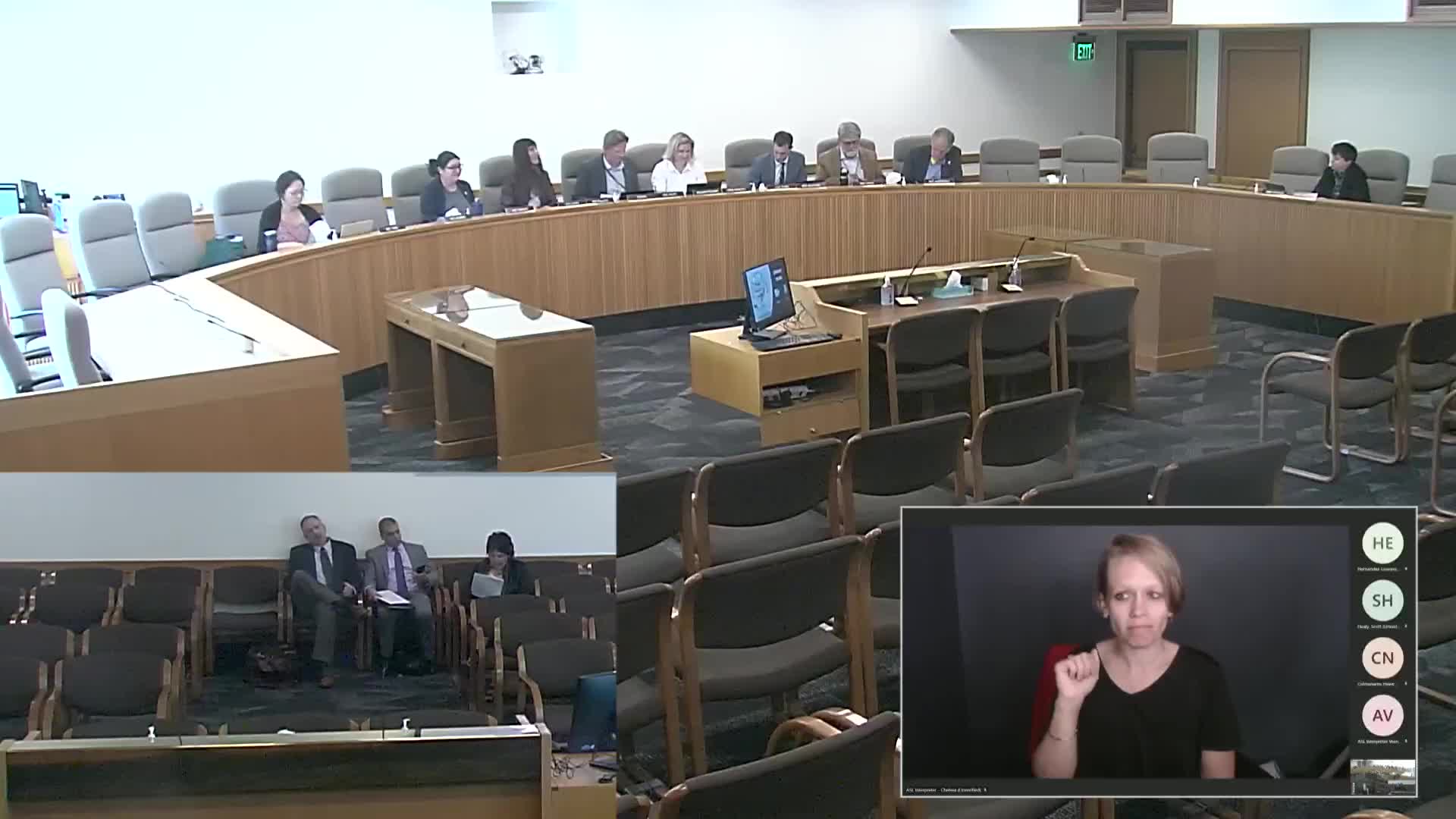House Judiciary holds public hearing on SB 1122A to clarify offender notification timing and reclassification authority
Get AI-powered insights, summaries, and transcripts
Subscribe
Summary
The House Committee on Judiciary held a public hearing April 28 on Senate Bill 1122A, which would let the State Board of Parole and Post‑Prison Supervision base initial classification on risk at the time of release and give the board authority to reclassify registrants after certain in‑custody rule violations.
The House Committee on Judiciary held a public hearing April 28 on Senate Bill 1122A, which would amend ORS 163A.100 to let the State Board of Parole and Post-Prison Supervision adopt a risk-assessment methodology that considers the risk an individual presented at the time of release, sentencing, or discharge and to authorize reassessments based on certain in-custody rule violations. Chair Croft opened the hearing and heard testimony from board officials, prosecutors and law enforcement retirees.
The measure would clarify that initial classification of ‘‘registrants’’ is based on the risk the person presented at release, sentencing or discharge and would authorize the board, a psychiatric security review board or supervisory authorities to reassess a person’s notification level if the person commits or is charged with certain rule violations while in custody or is arrested or charged with a qualifying crime. The bill also contains an emergency clause making it effective upon passage; sponsors noted it would apply to individuals classified on or after 07/10/2024 and that the Senate approved the bill by a 24-4 vote.
Board Chair John Bailey and Executive Director Dylan Arthur described the board’s longstanding practice and the statute the board has followed. ‘‘The board classifies registered *** offenders, also known as registrants, into 1 of 3 notification levels,’’ Bailey said, noting that the board historically used the Static-99R tool and interpreted the statute to require classification based on the date of release, sentencing or discharge rather than the date of the assessment. Arthur said the Oregon Court of Appeals’ decision in Thompson v. Board of Parole changed that practice by requiring desistance (time offense-free) to be considered at the time of the initial classification, and that SB 1122A would allow the board to return to its prior practice.
John Bailey told the committee that if SB 1122A does not pass, ‘‘the Board will be legally obligated to factor in desistance at the time of initial classification for all registrants, including those moving into Oregon,’’ and that the Thompson decision would require the board to reassess many historic cases. Bailey also said the bill would give the board authority to reclassify a registrant ‘‘if the registrant has committed a ******** motivated rule violation while in custody, has committed a ******** motivated violation of a condition of probation, parole, or post prison supervision, or has been arrested for or charged with a *** crime.’’
Scott Healy, first assistant district attorney in Clackamas County, testified on behalf of the Oregon District Attorneys Association and said the association initially opposed part of the bill but after clarification now ‘‘strongly [supports] both, subsection 1, subsection 2 in the entire bill.’’ Healy said the Static-99R provides consistent information when used to classify people at the time of release and that subsection 2’s allowance to consider in-custody, offense-motivated rule violations ‘‘just makes good common sense.’’
Retired Multnomah County deputy sheriff Lori Kimmel testified in opposition to the bill’s timing and to provisions she said reduce accountability. Kimmel asked why the bill includes an emergency clause and urged lawmakers to wait for the board’s ongoing work group and outstanding appellate cases to conclude. ‘‘This is not a victimless crime,’’ she said, and expressed concern about fiscal impacts and about an appointed board making decisions she believed should have greater public accountability.
Committee members asked clarifying questions about the Static-99R tool, how desistance is represented in the research and the workload implications for the board. Bailey and Arthur said applying the Thompson standard would increase workload because many historic cases likely would need reclassification; they also said the number of immediate reclassifications tied to the timing of rule changes was relatively small because the board had been preparing temporary rules for Thompson referrals. Representative Lewis asked whether the bill would cause any level 3 registrants to be reclassified to lower levels; Bailey replied it would not change the board’s historical practice of classifying on the date of release and that someone initially classified as level 3 would remain ineligible for relief except under limited petition rules.
Chair Croft closed the public hearing and the committee moved on to work sessions on other bills.
The bill’s principal legal citations and background were discussed openly at the hearing: ORS 163A.100 (classification of registrants), ORS 163A.125 (criteria for petitions for relief or reclassification), the Static-99R risk-assessment tool, and the Oregon Court of Appeals decision Thompson v. Board of Parole, which the board said required them to factor desistance at initial classification unless the Legislature amended the statute. The board explicitly stated it was not taking a legislative position and framed SB 1122A as a policy clarification for the Legislature to decide.
No committee action was taken on SB 1122A at the April 28 public hearing; the hearing record closed and the committee proceeded to work sessions on other measures.
